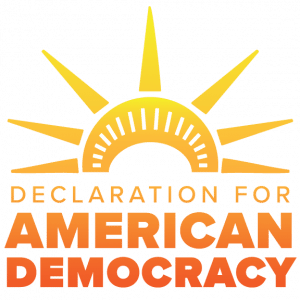This week in state updates, a Wisconsin appeals court blocked the purge of over 200,000 voters from its rolls. Virginia’s bipartisan redistricting bill is advancing through the legislature. Georgia lawmakers have proposed a bill to address prohibitively long lines at the polls on Election Day. Meanwhile, Texas experienced hundreds of poll closures, which led to long lines in predominantly Black and Latinx areas. Pennsylvania is facing a lawsuit over its practice of “prison gerrymandering.” California is facing special interest money pouring into elections through a large loophole in the state’s campaign finance law. And the Kentucky legislature approved a bill to restore voting rights for formerly incarcerated residents.
In national updates, civil rights defenders called for extra scrutiny of voter suppression tactics on the 55-year mark since Bloody Sunday. And reformers made the case for non-partisan unity on fighting the corrupting influence of big money in politics.
National News
The Guardian – In Selma, 55 years after Bloody Sunday, concern rises over voting rights
[…] This year’s celebration came amid increased scrutiny over voter suppression tactics, such as states removing people from the voter rolls or closing polling places. Alabama has restrictive policies: people have to show a photo ID to vote and there is no early voting. People with felonies also face severe hurdles to regaining their voting rights.
Selma, the birthplace of voting rights as we know them, is grappling with such policies and with economic distress.
“Selma is stagnant, we can’t move forward,” said Jesse Marvin, of the unemployment and challenges in his hometown.
The Fulcrum – Fighting corruption can unite the American people
[…] According to Cunningham, a 2016 ballot measure in Massachusetts regarding charter school financing was funded by a nonprofit called Families for Excellent Schools, in the amount of $25 million. This organization has no family members and appears to be nothing more than a conduit for secret money donations, according to Cunningham. When the donors were eventually disclosed, months after the election, they included members of the Walmart conglomerate in Arkansas, who had contributed as much as $5 million of the funding.
According to the New York Times, the 2014 midterm election was influenced by “the greatest wave of secret, special-interest money ever raised in a congressional election.” And the Center for Responsive Politics reports that spending by organizations that do not disclose their donors increased from less than $338 million in 2008 to well north of $1.4 billion in 2016.
With the continuation of these secret donations in politics, it doesn’t matter if you’re a progressive or a conservative, it’s the billionaires and giant corporations that will decide what bills get passed and what budgets are approved. Though we continue to go through the democratic process, it’s never been more apparent that our votes just don’t count. Because, even if our candidate wins the election, as long as our legislators are beholden to corporate interests, the will of the people remains immaterial.
State Updates
Wisconsin – Chicago Tribune – Wisconsin court overturns ruling that ordered removal of up to 209,000 people from voter rolls
A Wisconsin appeals court on Friday overturned a ruling that ordered the removal of up to 209,000 people from the state’s voter rolls, handing Democrats a victory in a case they said was intended to make it more difficult for their voters to cast ballots in November.
The court last month put the ruling, and the purge, on hold while it considered the case. The 4th District Court of Appeals ruling overturned the decision of an Ozaukee County judge who had initially ruled in favor of a conservative law firm that was seeking the purge.
[…] The case has received a lot of attention because Wisconsin is among a group of swing states being targeted by Democrats and President Donald Trump this year. Trump won Wisconsin in 2016 by fewer than 23,000 votes, putting even more of a focus on every voter in the state.
The voter purge lawsuit argued that the state elections commission broke the law when it did not remove voters from the rolls who did not respond within 30 days to a mailing in October indicating they may have moved. The commission wanted to wait until after the November 2020 presidential election before removing anyone because of inaccuracies found while previously attempting to identify voters who may have moved.
California – Cal Matters – Last-minute special interest cash pours through California’s $50,000 loophole
California legislators tried to cast some sunlight on anonymously funded dark money groups in 2017 when they passed a law requiring these independent expenditure committees to list their major donors on the political ads and mailers they pay for.
Such committees, generally funded by major corporate or labor organizations with business before the state, can legally raise and spend unlimited sums to boost or tear down a candidate so long as they don’t coordinate with a campaign.
But three years after passage of the “Disclose Act,” a number of the bill’s fiercest supporters now say the law contains a loophole big enough to drive a $50,000 truck through.
Here’s the catch: These committees are required to list a funder as a “top donor” on their ads only if that contributor has given at least $50,000. If donors give, say, $49,000, then their names need not be disclosed on the ads.
Virginia – Washington Post – Bipartisan redistricting measure advances in Virginia
A proposed constitutional amendment intended to prevent partisan gerrymandering advanced out of a House committee Monday, with a handful of Democrats helping Republicans fend off efforts to kill it.
The House Privileges and Elections Committee voted 13 to 8 to send the resolution to the House floor days before the General Assembly’s scheduled adjournment Saturday. Four Democrats and all nine Republicans on the committee voted for the resolution. The eight votes against were all Democrats, who had one member absent.
Atlanta Journal Constitution – Bill takes aim at long lines on election day in Georgia
A bill backed by Secretary of State Brad Raffensperger would require election officials to do something about long lines.
If lines last more than one hour, county election superintendents would have to split up precincts that have more than 2,000 voters, provide additional voting equipment or hire extra poll workers, according to Senate Bill 463.
“The right to vote is a most sacred democratic duty, and one that should not be inhibited by unnecessarily long lines,” Raffensperger said in a statement Friday.
The proposal comes after some voters waited more than three hours during the high-turnout 2018 election for governor. Raffensperger has said voters shouldn’t have to wait more than 30 minutes to vote.
Pennsylvania – WHYY NPR – NAACP suing Pennsylvania to stop ‘prison gerrymandering’
Just ahead of the 2020 Census, three formerly incarcerated men from Philadelphia are suing the state to end the controversial practice known as “prison-based gerrymandering.”
Filed in Commonwealth Court on Thursday, the civil lawsuit maintains that it’s against state law for Pennsylvania to count those serving time as residents of the counties where they are in prison, instead of in the counties where they were living when they were arrested.
The reason, according to the suit, is that it “artificially and arbitrarily inflates” the political power of the predominantly white, rural communities where most of the state’s prisons are located and “artificially and arbitrarily dilutes” the political power of the predominantly Black and Latinx communities where most of the state’s prison population resided before starting their sentences.
Texas – The Guardian – Texas closes hundreds of polling sites, making it harder for minorities to vote
Last year, Texas led the US south in an unenviable statistic: closing down the most polling stations, making it more difficult for people to vote and arguably benefiting Republicans.
A report by civil rights group The Leadership Conference Education Fund found that 750 polls had been closed statewide since 2012.
Long considered a Republican bastion, changing racial demographics in the state have caused leading Democrats to recast Texas as a potential swing state. Texas Democratic party official Manny Garcia has called it “the biggest battleground state in the country”.
The closures could exacerbate Texas’s already chronically low voter turnout rates, to the advantage of incumbent Republicans. Ongoing research by University of Houston political scientists Jeronimo Cortina and Brandon Rottinghaus indicates that people are less likely to vote if they have to travel farther to do so, and the effect is disproportionately greater for some groups of voters, such as Latinxs.
Maryland – The Baltimore Sun – Let’s celebrate 100 years of women’s suffrage by ending gerrymandering in Maryland
This year marks a major milestone in advancing voting rights in our country: 100 years of women’s suffrage.
Though the 19th Amendment granted women access to the ballot box in 1920, it wasn’t until the Voting Rights Act of 1965 passed that women — regardless of their race or ethnic background — could vote without barriers. Fifty-five years later and many Americans consider equal access to the ballot box a given. After all, here we are, two black women who are not just exercising our right to vote, but who are earning those votes and driving progressive policy changes in our state government.
However, our insider view also allows us to see that even after all these years, our Democratic process is still flawed. We need to continue to craft and champion policies that will create a more perfect and responsive democracy for all Marylanders.
This year, to honor the fight of the suffragists and civil rights activists and continue their legacy, we are taking aim at a form of voter suppression that is still very much alive and well in America today: gerrymandering. Gerrymandering is a weapon that has been wielded for more than two centuries to chip away at the will of the people. This manipulation of voting maps has been used to bolster political parties and candidates to the detriment of constituent accountability. It also has been used to control certain communities — usually non-white communities — by packing groups together in one district to limit their influence, or cracking up neighborhoods to fracture their power.
WHAS11 – Kentucky senate OK’s bill to restore voting rights for some felons
The Kentucky Senate has approved a proposal to restore voting rights for some felons who have completed their sentences.
The Courier Journal reports the proposed constitutional amendment passed Thursday and heads to the House.
If approved there, it would go on the November ballot. It would amend Kentucky’s Constitution to allow felons to have their voting rights restored after serving full sentences, as long as they were not convicted of treason, sex crimes, violent crimes or crimes against children.
It would be up to the legislature to determine how voting rights would be restored and if it would include a waiting period.

